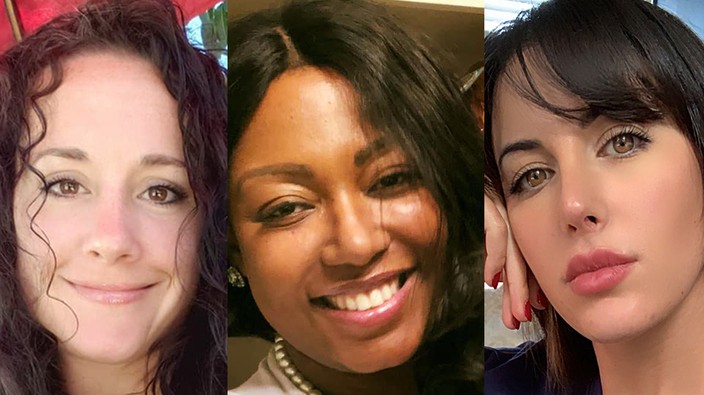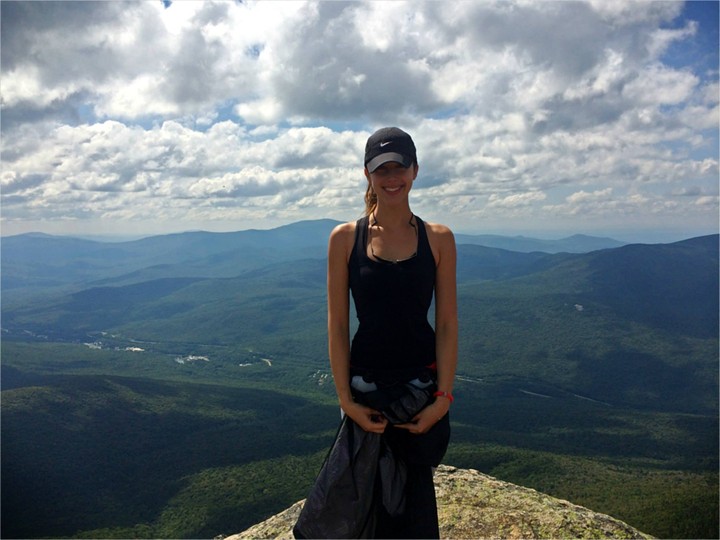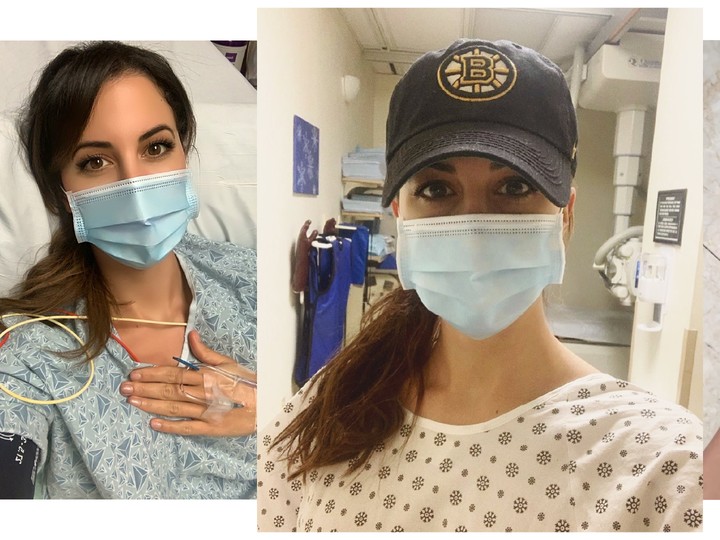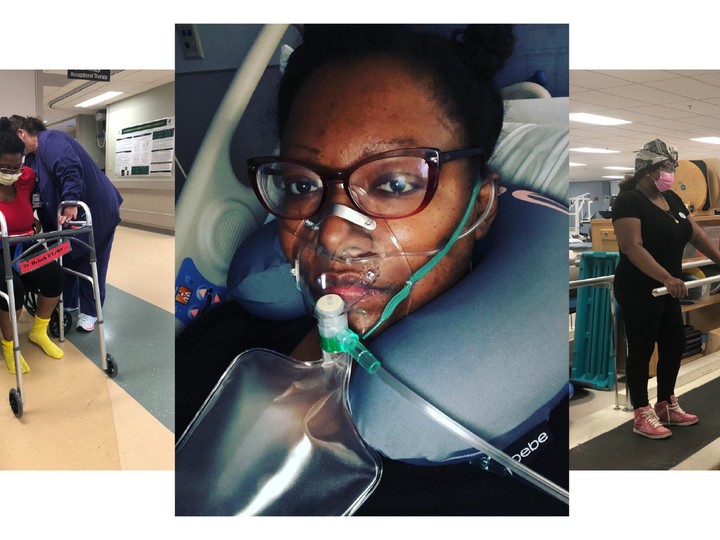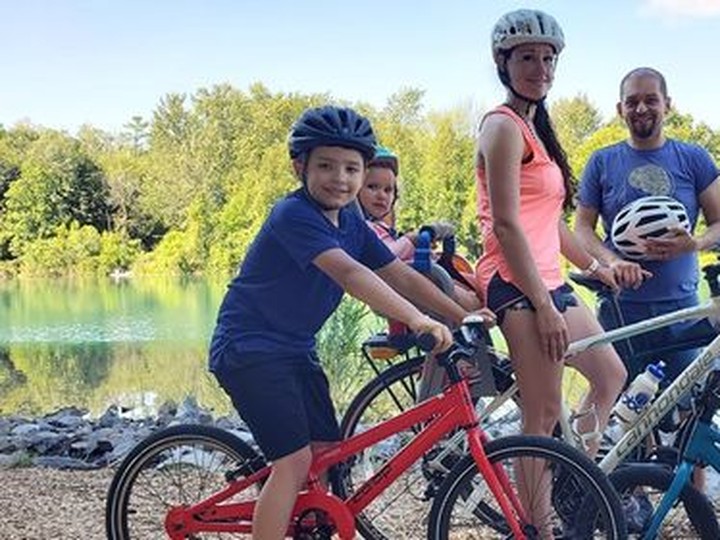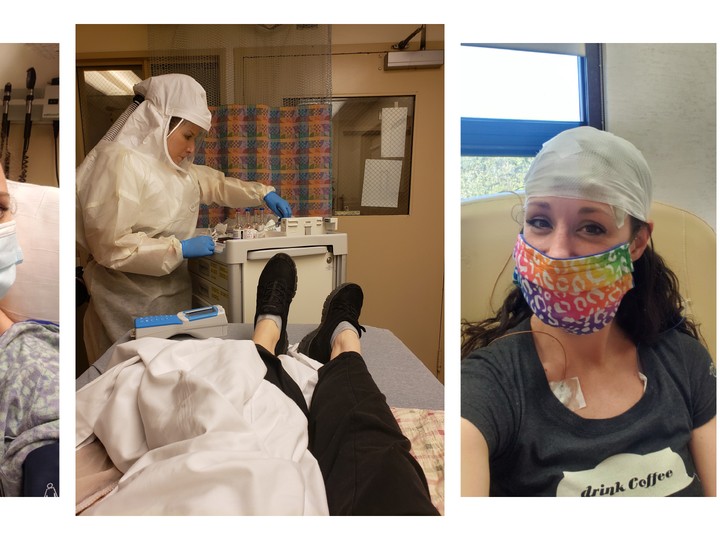the disbelievers
nichols says she’s met a lot of people, both online and in real-life, who don’t believe long-haul covid survivors. and although she wakes up most mornings completely exhausted, this is what has motivated her to advocate for long haulers.“a lot of people don’t relate because they haven’t lived it. sometimes, people aren’t getting the proper medical support, so you’re really left to kind of fend for yourself — and that’s a very difficult place to be in when you are battling such difficult physical issues,” she says. “you cannot pretend it’s psychological when there are very real physical symptoms going on. it’s incredibly inhumane to tell that person your erratic heartbeat, your covid toes, your diarrhea or severe nausea is because of anxiety.”***
heather-elizabeth brown (pictured right).
courtesy of heather-elizabeth brown
heather-elizabeth brown had been taking all the precautions she could to avoid covid-19. she started wearing a mask early in the pandemic, stayed physically distanced from others, and constantly washed her hands and used hand sanitizer. to this day, she’s not sure where she contracted the disease that would put her on a ventilator for 31 days.as chaplain of the detroit police department, brown was able to get tested for the virus as a first responder. her first two tests came back negative even though she was already coughing. on her first visit to hospital, she was told to go home, self-quarantine, and get a pulse oximeter to check her oxygen levels. as she got sicker, she returned to the hospital, where she was turned away again.on her third visit to the hospital on april 15, with a high temperature, low oxygen levels and a chest x-ray that showed pneumonia, she was finally tested. the positive result was both reaffirming and frightening.“it was a feeling of bittersweet and almost relief that i was right in listening to my body. i knew that something was wrong,” she says. “but also a sense of dread because i knew that i had covid and i was pretty sick.”within 48 hours, brown’s condition deteriorated rapidly. the previously healthy 35-year-old was sedated, put into a coma, then on a ventilator in the early hours of april 18.“i have only been able to piece together that 12 to 24 hour range from looking back over text messages from a couple people i was talking to leading right up to when i went on to the ventilator,” she says. “but i don’t remember anything about that whole day.”waking up from being on a ventilator was nothing short of surreal.“i had some really vivid dreams and nightmares when i was on the ventilator, and when i first woke up, it was really difficult to know what was reality,” she says. “it took me a couple days to like get my bearings and grasp what had happened.”she describes not being able to speak.“it wasn’t until a day or two later, when one of the nurses in the intensive care unit was talking to me and i realized i couldn’t talk back,” she says. “i could make movements and mouth words, but nothing was coming out. i finally asked, ‘when was i?’ meaning, ‘where was i?’ and ‘when is it?’ he told me, ‘it’s the middle of may.’ then i remembered the last time i went to sleep was in the middle of april.”
brown spent more than a month in the hospital, 31 days of which she was on a ventilator. here’s, she is shown recovering from covid-19.
courtesy of heather-elizabeth brown
